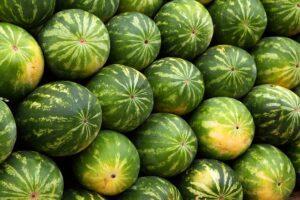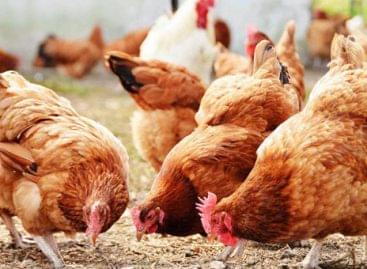Domestic melon production can be strengthened through cooperation
There is room for development in the domestic melon sector, the demand for Hungarian watermelons is increasing on the export markets. However, in order to take advantage of the opportunities, greater producer cooperation is needed – it was revealed at the last meeting of the melon working group of the National Chamber of Agricultural Economy, at which the Association of Hungarian Melon Growers and the Hungarian Fruit and Vegetable Association (FruitVeB) were also represented.

(Photo: Pixabay)
The representatives of the domestic melon sector discussed the results of this year and the tasks of the future at the last meeting of the melon working group of the National Chamber of Agrarian Economy. At the meeting – at which the Association of Hungarian Melon Growers and the Hungarian Fruit and Vegetable Association (FruitVeB) were also represented – it was revealed that although the season was delayed due to the cooler, rainy summer, the sector can close a moderately good year overall this year. While a demand market emerged throughout Europe in July due to weather anomalies in the Mediterranean region, August was already characterized by oversupply, which also affected prices. The heatwave that arrived in the second half of August was also good for the melon market, the producers were able to sell the existing stocks both domestically and on the export markets.
However, plant protection presents growing challenges to producers
Several diseases appeared this year, the treatment of which required a lot of work and effort. An example is melon blight (anthracnose), which has become one of the most significant fungal diseases of watermelons. The protection against the disease is made difficult by the fact that the list of licensed plant protection products is narrow, and next year additional products will be withdrawn from the market. Unfortunately, due to misconceptions about plant protection products, producers find themselves in an increasingly difficult situation, which can have a negative impact not only on melons, but on crop production in the European Union as a whole. After all, plant protection products are preparations similar to medicines used in human health: active ingredients that protect plants from diseases and pests, in order to ensure that the right quantity and quality of products can reach consumers’ tables.
Farmers planted melons on about 3,000 hectares this year, and the total yield reached 130-140 thousand tons
From the point of view of the future of the sector, it is promising that in the Eastern Hungarian region, the area under melon production increased by about 10 percent this year, and this trend may continue in the future. The fall in prices for arable crops can also play a role in the growth of the cultivated area, some of the arable crop growers see an opportunity in melon production. The domestic traditional market can probably no longer grow, but the export markets show a keen interest in Hungarian melons. It is also a clear trend that the market is becoming more concentrated, all supply chains are looking for larger sources of production, which is why cooperation in the sector would be of great importance. With the cooperation of the producers, the negotiating position vis-à-vis the trade can be strengthened. In the future, even more serious emphasis than now must be placed on the continuous, up-to-date transfer of information. This process is also supported by the National Chamber of Agrarian Economy. According to the plans, before the next season, they will negotiate separately with the domestic food chains about the arrival of the first Hungarian watermelon shipments, and during the season they will continuously provide the stores with information. It is important to maintain the position of the Hungarian melon against cheap, often poorer-quality imports. By choosing the domestic product, customers can not only take home a guaranteed high-quality and tasty melon, but also ensure the livelihood of hundreds of Hungarian families working in the Hungarian melon sector.
NAK
Related news
Not a turnaround, but consolidation: an agricultural outlook for 2026
🎧 Hallgasd a cikket: Lejátszás Szünet Folytatás Leállítás Nyelv: Auto…
Read more >Related news
How Coca-Cola plans to build more billion-dollar brands
🎧 Hallgasd a cikket: Lejátszás Szünet Folytatás Leállítás Nyelv: Auto…
Read more >









